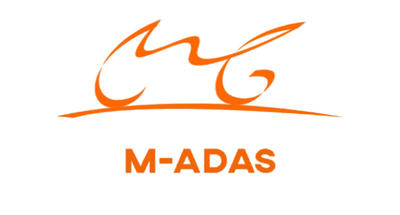The Evolution of Human Phobias in AI Cinema
Title:
The Evolution of Human Phobias in AI Cinema: From Machine Domination to the Horrors that Haunt Humanity.
Introduction:
In the realm of cinematic storytelling, artificial intelligence (AI) and robots have long served as fascinating subjects, often symbolizing the ever-evolving relationship between humans and technology.
Throughout the history of cinema, from the first motion pictures to modern television series and movies, depictions of AI have provoked a range of human phobias.
This article explores the main differences in human fears surrounding the notion of machines ruling the world and delves into the enduring phobias depicted in cinema that continue to haunt humanity.
I.
Early Depictions of AI in Film:
The birth of AI in cinema can be traced back to Fritz Lang's iconic silent film, "Metropolis" (1927).
At its core, the film addressed concerns about the industrial revolution and the fear of a working-class uprising led by a robot called "Maria."
These early depictions highlighted apprehensions over the potential loss of control and chaos ensuing from the rise of intelligent machines.
II.
Machine Uprising in Science Fiction:
As cinema progressed, the portrayal of AI evolved, reflecting shifts in human fears.
Classic science fiction films like "The Day the Earth Stood Still" (1951) and "War of the Worlds" (1953) presented AI as an external threat, with machines representing alien invaders.
These films tapped into Cold War anxieties, mirroring the fear of domination and destruction by an external force. Here, the phobia shifted from machines ruling the world to the fear of machines aiding an external force in the subjugation of humanity.
III.
Technological Paranoia and AI: In the latter half of the 20th century, advancements in technology brought forth a new wave of AI-inspired movies. Films like "2001: A Space Odyssey" (1968) and "Blade Runner" (1982) explored the concept of sentient AI, raising concerns surrounding the potential usurpation of human intelligence and identity.
Human phobias in these films revolved around the loss of control over one's own consciousness and the existential dilemmas posed by AI's increasing similarity to humans.
IV.
The Ethical Dilemma of AI:
More recent films, such as "Ex Machina" (2014) and "Her" (2013), address the ethical dilemmas associated with AI.
These movies delve into the question of human emotions and relationships with AI, triggering fears relating to the blurring boundaries between human and machine.
Phobias in these films center around the potential for emotional manipulation, vulnerability, and the erosion of authentic human connections. V.
The Horrors of Humanity:
While fears of machines ruling the world have taken a backseat in recent years, cinema has continued to explore the horrors that haunt humanity. Films like "The Matrix" (1999) and "Westworld" (1973, 2016) depict AI as a reflection of human flaws and the potential for humankind's self-destruction. These films reflect deeper phobias ingrained in human nature, including the fear of losing autonomy, the consequences of our own actions, and the existential crisis of identity and purpose.
VI.
The Future of AI Phobias:
As AI continues to advance in the real world, there is no doubt that cinema will continue to explore the evolving fear surrounding this technology.
With the rise of AI-driven algorithms, there is a growing concern about the loss of privacy, ethical transgressions, and the potential for mass surveillance. Future films may tap into these fears, depicting AI as an insidious force invading every aspect of our lives.
Conclusion:
From the early days of cinema to the present, films have mirrored human anxieties and fears regarding artificial intelligence.
The shift in phobias surrounding AI in cinema reflects societal and technological advancements, transitioning from the idea of machines ruling the world to exploring deeper fears that lie within human nature.
While the fear of machine domination has somewhat subsided, films continue to highlight the horrors that haunt humanity, reminding us of our own vulnerability, ethical dilemmas, and existential concerns. As AI continues to evolve, it is certain that cinema will keep pace, reflecting the ever-changing fears and anxieties that arise from our complex relationship with technology.
By Ilan Levy
